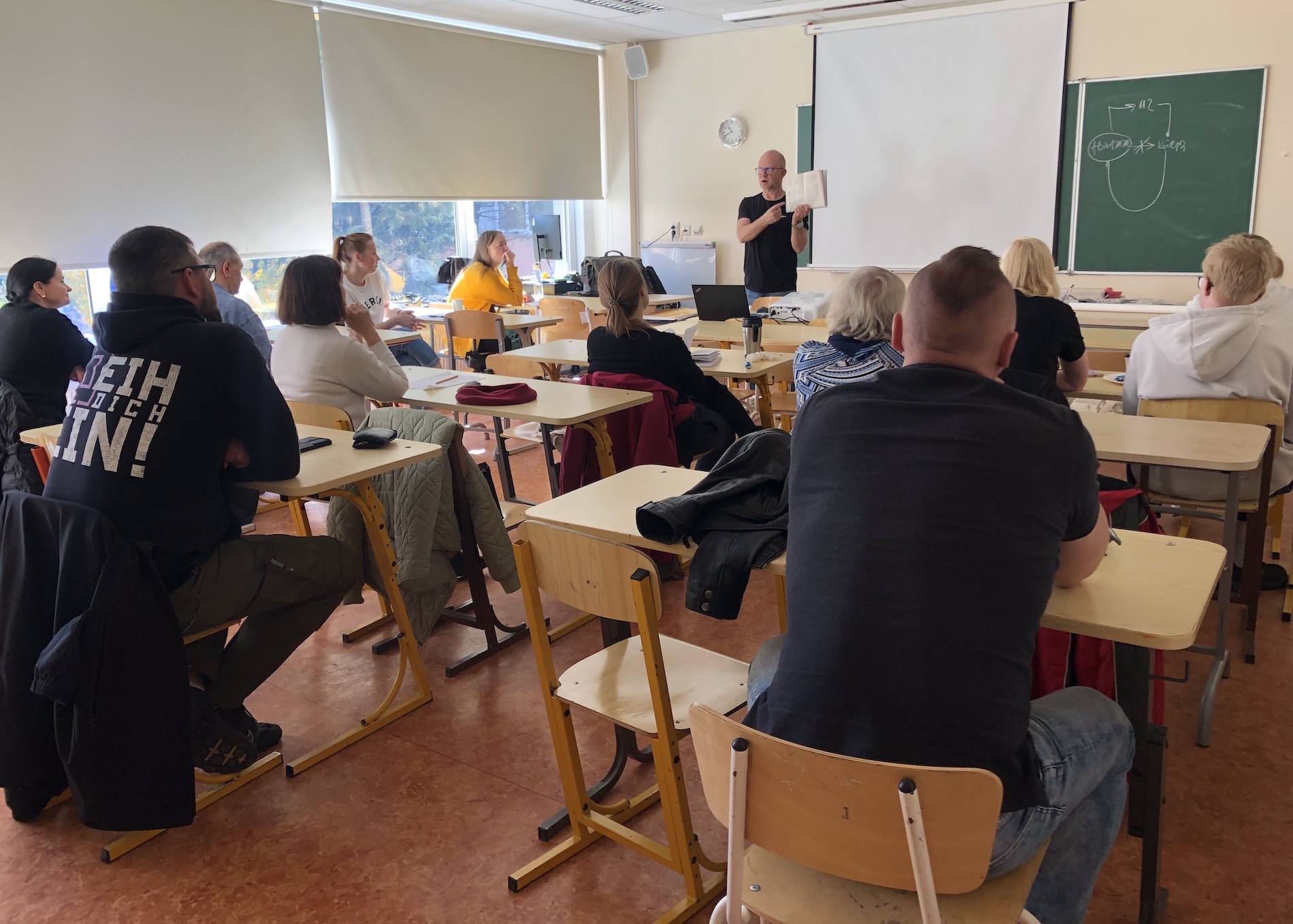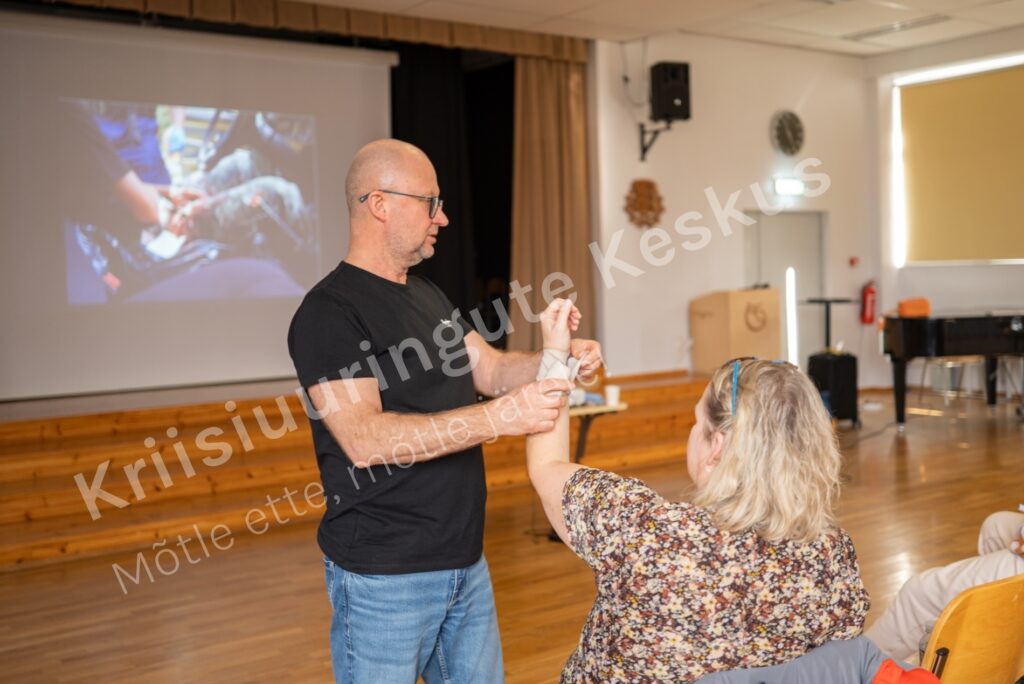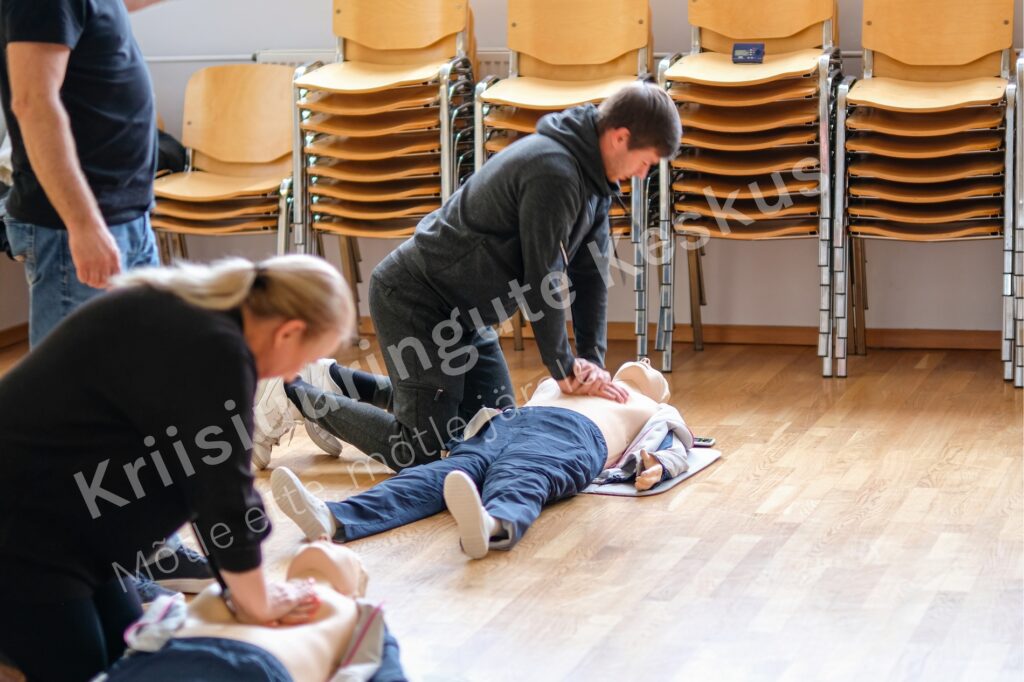
The fourth first aid group in Väike-Õismäe started learning life-saving techniques
On May 17, Väike-Õismäe residents gathered to learn a potentially life-saving skill. The fourth first aid training session began, and despite the chilly spring weather, people showed up to learn skills that could one day be useful. Because crises do not ask if you are prepared – which is exactly what our training teaches people to be.
The Crisis Research Center’s first aid training as part of its community crisis skills program is not your typical “bandage rolling” or “theoretical lecture.” It’s a practical and honest look at first aid that doesn’t focus on what to do in ideal conditions. Unfortunately, crises and perfect scenarios do not go together. That is why we concentrate on what to do when time is short, resources are scarce, and stress is high. The trainer is paramedic Andrus Lehtmets, who has a clear and straightforward teaching style that leaves no one unimpressed.
“A person does not need a perfect bandage; they need someone who is willing to act. During the training, participants learn how to think and act in situations where there is no time to Google instructions,” said Hannes Nagel, head of the Crisis Research Centre.
In a crisis, there’s no time to hesitate—you need to act
The training focuses on practical techniques, such as how to assist a traffic accident victim, what to do if someone’s heart stops, or what to do if all communication fails and help does not arrive. Every participant is expected to have hands-on experience by the end of the day, as we practice resuscitation, assisted breathing, stopping heavy bleeding, dealing with trauma, and other skills. The examples and simulations are both realistic and challenging. And, of course, myths are debunked. For example, did you know that a heart cannot be “restarted” with a punch, as depicted in American movies?


The most important message participants take away from the training is that providing first aid is not a privilege reserved for experts; it is an opportunity and responsibility for everyone. And once you’ve done a realistic scenario exercise, the fear of acting goes away. In times of crisis, that confidence can be the difference between life and death. There is only one more chance to join this year: on May 24, the Haabersti district will host its fifth and final first aid training of 2025. If you haven’t participated yet, now is the time!
🟧🟦 The activities of the K-24 project will be carried out by the Crisis Research Centre, and the implementation of the project activities is supported by the Civil Society Foundation through the Ministry of the Interior.
Photos: fourth group’s first aid training in Väike-Õismäe (Kriisiuuringute Keskus, 2025).
Jaga postitust:
